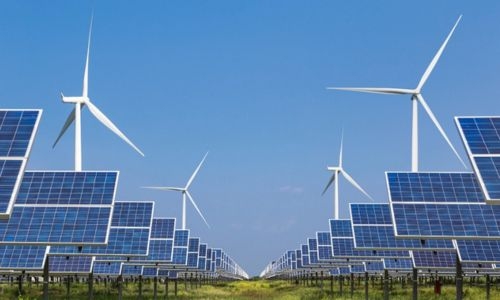The Gulf Cooperation Council (GCC) is making significant strides towards renewable energy, with a target of generating 80 gigawatts (GW) of renewable energy by 2030. This ambitious goal is expected to bring about various social and economic benefits, including job creation, fuel savings, and reduced carbon emissions. However, there are challenges posed by the intermittent nature of renewable energy sources such as solar and wind, especially with the increasing demand for electricity due to rapid economic growth in the GCC region.
To address these challenges, the GCC Interconnection Authority, led by CEO Engineer Ahmed Al Ebrahim, is implementing innovative solutions. These include energy storage technologies to manage the intermittency of renewable energy sources, stability control technologies to ensure a reliable and stable electricity grid, continuous monitoring, and artificial intelligence to analyze grid data for proactive decision-making, and carbon footprint analysis to reduce the environmental impact and align with global efforts towards net-zero emissions. Al Ebrahim emphasizes the importance of international cooperation, capacity building, and the adoption of modern technologies, particularly energy storage, to successfully integrate large-scale renewable energy into the grid while maintaining reliability.
The CEO highlights the GCC’s commitment to renewable energy through ambitious plans and ongoing projects, such as the establishment of the Al Wafrah power station and interconnection with Iraq. These initiatives strengthen the region’s energy security and create new investment opportunities in both traditional and renewable energy sectors. Additionally, the Authority is working on expanding the interconnection network with Kuwait, the UAE, and Oman, with the aim of increasing capacity and enhancing direct connections with other countries.
The GCC’s ambitious renewable energy goals and proactive measures taken by the Interconnection Authority reflect a strong commitment to a sustainable future. These efforts not only contribute to global initiatives to combat climate change but also secure a cleaner energy future for the region. By fostering collaboration among technical, financial, investment, and research entities, the GCC aims to address climate change and promote a sustainable future for all. With a focus on innovation and cooperation, the GCC is paving the way for a greener and more sustainable energy landscape in the coming years.










